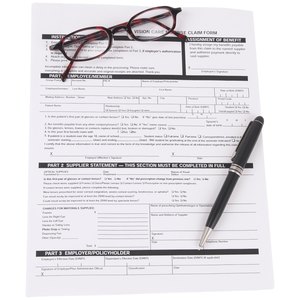
When a person dies, her assets will be distributed to her heirs through the probate process. The transfer of any real estate must be recorded by a written document, most commonly a deed. Heirs do not need to sign a deed if the deceased's will states they will take over the property; however, they will still need for the probate process to finish before they can use the property. An heir can avoid any delay of property use if the deceased had set up an immediate transfer of property rights, such as joint ownership, before she died.
Deeds
A deed is used to transfer the ownership of real estate property. When a person wants to transfer real estate to someone else, he signs a property deed that lists a description of the property and the names of the old and new owners. When a person dies, his estate plan determines how is property will be transferred to heirs. Whether a deed is needed for the heirs to use the real estate depends on how the deceased had titled his assets and prepared his will.
Transfers Requiring a Deed
For a person to transfer property either alive or at death, she must record the transfer in writing. A deed is the most commonly used document, but a will can also serve this purpose. If a person dies intestate, without a will, the heirs of real estate must sign a deed to complete the transfer of property, allowing them to use the property. Even if there is a will and no deed is required, the executor of the deceased's estate should still sign an executor's deed for property transfer in order to clarify property records regarding the transfer.
Transfer without Deeds
A deed is not necessary for an heir to use real estate if he had a form of joint ownership in the property with the deceased. When an owner dies in jointly owned property, the surviving co-owner automatically takes over ownership because of survivorship provisions. This automatic transfer also occurs if the deceased had set up a transfer-on-death deed for the property. The real estate immediately goes to the heir and avoids probate. While a deed is not necessary in these transfers, the heir should file an affidavit recording the past owner's death in the real estate records to clarify the property transfer.
Third-Party Transfers
While managing and distributing an estate, an executor may need to sell some of the deceased's real estate. This step may be necessary to pay off the deceased's expenses or to divide the estate proceeds better among the heirs. A deed will be needed to transfer the ownership title of property to a third party not mentioned in the will. The heirs will not be allowed to use property that is sold out of the deceased's estate.
References
- “Fundamentals of Estate Planning”; Constance Fontaine; 2010
- NOLO: Deeds FAQ
- RealEstateLawyers.com: Understanding the Executor's Deed
- Superior Court of California, County of Alameda. "What Are the Advantages of a Living Trust?" Accessed May 15, 2020.
- AARP. "Transfer on Death Deed (TODD)," Page 1. Accessed May 15, 2020.
- Alaska Court System. "Transfer on Death Deed - What Does the Transfer on Death (TOD) Deed Do?" Accessed May 15, 2020.
- Alaska Court System. "Transfer on Death Deed - Do I Have to File the TOD Deed in Court?" Accessed May 15, 2020.
- Alaska Court System. "Transfer on Death Deed - How Do I Revoke the TOD Deed After It Is Recorded?" Accessed May 15, 2020.
- Internal Revenue Service. "Estate and Gift Taxes." Accessed May 15, 2020.
- FindLaw. "Transfer on Death Tax Implications." Accessed May 15, 2020.
- Alaska Court System. "Transfer on Death Deed." Accessed May 15, 2020.
- Arizona State Legislature. "33-405. Beneficiary Deeds; Recording; Definitions." Accessed May 15, 2020.
- FindLaw. "Arkansas Code Title 18. Property § 18-12-608. Beneficiary Deeds--Terms--Recording Required." Accessed May 15, 2020.
- Sacramento County Public Law Library & Civil Self Help Center. "Transfer on Death (TOD) Deeds," Page 1. Accessed May 15, 2020.
- Colorado General Assembly. "Probate, Trusts, and Fiduciaries," Pages 1-2. Accessed May 15, 2020.
- District of Colombia, Office of Tax and Revenue. "Revocable Transfer-on-Death Deed," Pages 1-3. Accessed May 15, 2020.
- Hawaii State Legislature. "Uniform Real Property Transfer on Death Act." Accessed May 15, 2020.
- Illinois General Assembly. "(755 ILCS 27/) Illinois Residential Real Property Transfer on Death Instrument Act." Accessed May 15, 2020.
- FindLaw. "Indiana Code Title 32. Property § 32-17-14-11." Accessed May 15, 2020.
- Kansas Legislative Sessions. "Article 35 - Transfer-on-Death." Accessed May 15, 2020.
- Minnesota Legislature, Office of the Revisor of Statutes. "507.071 Transfer on Death Deeds." Accessed May 15, 2020.
- Missouri Revisor of Statutes. "461.025. Deeds Effective on Death of Owner — Recording, Effect." Accessed May 15, 2020.
- Montana Code Annotated 2019. "72-6-415. Optional Form of Transfer on Death Deed." Accessed May 15, 2020.
- Nebraska Legislature. "Nebraska Revised Statute 76-3402." Accessed May 15, 2020.
- Nevada Legislature. "NRS 111.771 Property Held in Beneficiary Form; Registration in Beneficiary Form; Transfer-on-Death Directions." Accessed May 15, 2020.
- State Bar of New Mexico. "Transfer on Death Deed," Pages 1-2. Accessed May 15, 2020.
- North Dakota Legislative Branch. "Chapter 30.1-32.1 Uniform Real Property Transfer on Death Act," Pages 1-3. Accessed May 15, 2020.
- Ohio Laws and Rules. "5302.23 Designating Transfer on Death Beneficiary." Accessed May 15, 2020.
- Oklahoma Tax Commission. "'Non-Testamentary Transfer–on-Death-Deed’. Title 58, §1251-§1258. Eff. Nov. 1, 2008," Pages 1-7. Accessed May 15, 2020.
- Oregon State Legislature. "Uniform Real Property Transfer on Death Act." Accessed May 15, 2020.
- South Dakota Legislature. "Part 4. Uniform Real Property Transfer on Death Act - 29A-6-403." Accessed May 15, 2020.
- Texas Constitution and Statutes. "Texas Real Property Transfer on Death Act." Accessed May 15, 2020.
- Virginia General Assembly. "§ 64.2-635. Optional Form of Transfer on Death Deed." Accessed May 15, 2020.
- Washington State Legislature. "Chapter 64.80 RCW Uniform Real Property Transfer on Death Act." Accessed May 15, 2020.
- West Virginia Legislature. "Chapter 36. Estates and Property." Accessed May 15, 2020.
- Wisconsin State Legislature. "705.15 Nonprobate Transfer of Real Property on Death." Accessed May 15, 2020.
- State of Wyoming Legislature. "HB0201 - Transfer on Death Deed." Accessed May 15, 2020.
- Gibbs Law Office. "Using a Lady Bird Deed in Florida [Overview, Pros and Cons]." Accessed May 15, 2020.
- State Bar of Michigan. "Ladybird Deed," Pages 31-32. Accessed May 15, 2020.
- Sacramento County Public Law Library & Civil Self Help Center. "Transfer on Death (TOD) Deeds," Page 3. Accessed May 15, 2020.
- Sacramento County Public Law Library & Civil Self Help Center. "Transfer on Death (TOD) Deeds," Page 5. Accessed May 15, 2020.
- Sacramento County Public Law Library & Civil Self Help Center. "Transfer on Death (TOD) Deeds," Page 4. Accessed May 15, 2020.
Writer Bio
David Rodeck has been writing professionally since 2011. He specializes in insurance, investment management and retirement planning for various websites. He graduated with a Bachelor of Science in economics from McGill University.

